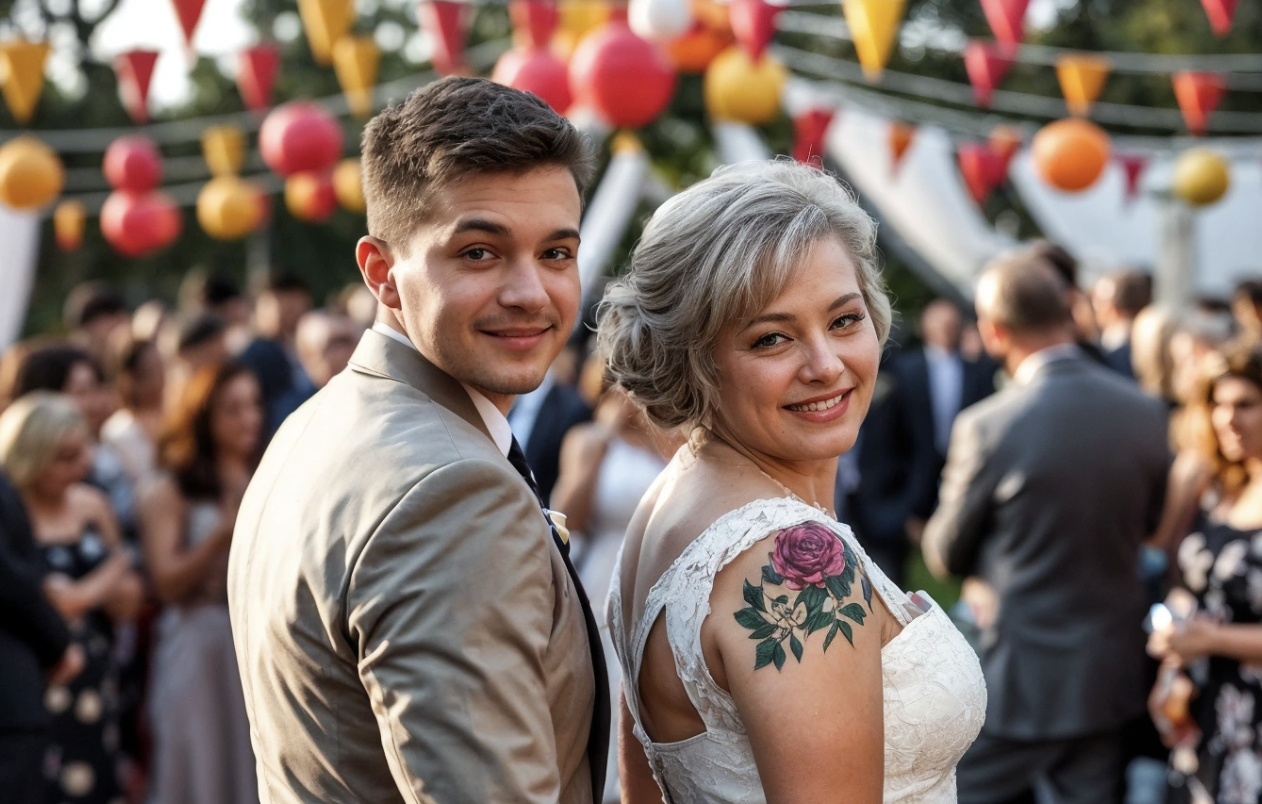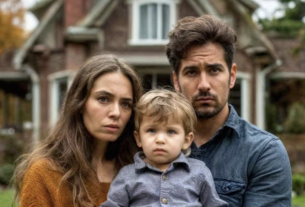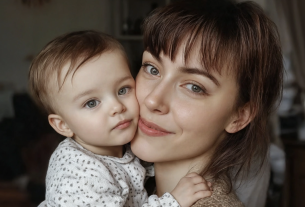Nicholas Miller had dreamed of luxury his entire life. Born in a small provincial town, he knew from an early age that he wanted more. His childhood was spent in a cramped apartment with noisy neighbors and a constant shortage of food. On TV, he saw houses with ocean views, expensive cars, carefree people—and Nicholas was sure: all this was meant for him.
By the age of 25, he had perfected the art of seduction. He knew how to listen, keep a conversation going, say what people wanted to hear. And most importantly—instill trust. His plan was simple: find a wealthy woman and become part of her world. Not for love, but for a carefree life.
She appeared at one of the social events in Los Angeles. Victoria Hathaway—a woman over sixty, a widow, owner of one of California’s largest family fortunes. In her lavender dress, with silver hair and a gentle gaze, she looked like the living embodiment of calm and dignity.
Nicholas watched her from afar, holding a glass of champagne—a luxury he could afford only through connections. He noticed how young men tried to keep their distance from her—too big an age difference. But for Nicholas, it didn’t matter. He saw not just a woman—he saw the key to his dream.
“Nicholas Miller,” he introduced himself, approaching her with a charming smile. “You look exceptionally beautiful today, Victoria.”
She smiled—softly, a little cautiously.
From that day, the courtship began. He arranged romantic dinners, admired her charity work, told her how long he had been searching for such a smart, refined woman. Victoria, who had lived alone for many years, had forgotten what attention felt like. He managed to awaken in her a feeling of youth and desirability.
Six months later, Nicholas proposed. Everything was perfect: the garden, rose petals, a diamond ring bought on credit. He spoke of true love, of feelings that know no age. She hesitated—the twenty-five year age difference was noticeable. But his words were so convincing… and she wanted to believe.
Rumors of the engagement spread instantly through high society. “A young handsome man marrying an old millionaire? He’s just a parasite!” party guests whispered. Nicholas pretended not to care. In fact, he was even proud—after all, that was exactly why he had started all this.
The wedding preparations moved quickly. He personally chose the floral arrangements, music, and lighting. He was the perfect groom—attentive, caring, passionate. But inside, he awaited only one thing: the signing of the documents that would officially make him the heir.
And then the wedding day arrived. An open-air chapel, pure white fabrics, golden ribbons, flowers. Guests sat in their seats, snapping cameras. Victoria entered in a dress exposing her shoulders—strict but incredibly elegant. Nicholas stood at the altar, smiling and accepting congratulations, inwardly burning with impatience.
The exchange of vows. The sound of cameras. Touching words. The wedding ring on her finger. Victory was close. Only the ceremony’s completion remained—and he would become what he had always dreamed of.
But at that moment, his eyes accidentally slid over her left shoulder.
There, just below the collarbone, was a strange birthmark—in the shape of a crescent moon.
The smile froze on his face. His breath caught. His heart raced as if it wanted to burst out of his chest.
He had seen that mark before. Or rather, he knew about it. Once, in childhood, he overheard a conversation between his adoptive parents. They mentioned his biological mother—a woman who had left him in an orphanage. The only identifying feature they remembered was a birthmark shaped like a crescent moon on her left shoulder.
Nicholas hadn’t understood the meaning of those words then. He was too young. But the detail had stuck in his memory. And now—it was looking at him from the shoulder of his new wife.
He was about to marry a rich widow…but he saw the mark on her shoulder—and realized: he had married his own mother.
Nicholas stood at the altar, looking at Victoria. His heart pounded wildly. Not from excitement, not from love—but from horror.
That birthmark on her shoulder. A crescent moon. Exactly the same as he had heard about in childhood. Just like his biological mother’s.
Could it really be her?
He had never thought she could have escaped poverty, become a millionaire, changed her name, her appearance… But that mark—it was no coincidence. It was impossible.
Victoria noticed his confusion:
“Nicholas, dear, are you alright?”
Guests exchanged glances. Something was wrong.
Nicholas took a deep breath, forced a smile, and instead of a kiss, touched her cheek. The ceremony continued, but inside he had already fallen apart.
At the banquet, he felt nauseous. Thoughts swarmed like bees in a ruined hive. He recalled everything he knew about his past life. Adoption papers accidentally found in a drawer. A note about his biological mother: a young girl who gave the child to an orphanage. The only mark— a crescent-shaped birthmark on the left shoulder.
And now—she was standing before him in a wedding dress. And he had just become her husband.
When the guests were busy with the cake, Nicholas quietly called Victoria.
“We need to talk,” he said hoarsely.
She immediately understood—something had happened. They went into the next room.
“That birthmark…” he began. “Have you always had it?”
“Yes, since birth,” she answered, puzzled. “Why do you ask?”
Nicholas closed his eyes, gathering his thoughts.
“I was adopted. My foster parents said my real mother had the same mark. On her left shoulder. Exactly the same.”
Victoria’s face turned pale. Her hands trembled. She took a step back, covering her mouth with her palm.
“You mean… you…”
“I’m afraid you are my biological mother,” he said, and those words hit them both like a bullet.
Silence. Shock. Tears. Victoria sat on the edge of a chair, pressing a handkerchief to her eyes with trembling fingers.
“I was sixteen…” she whispered. “My parents took my son away. Gave him to an orphanage. I never saw him again… Didn’t even know his name.”
She looked at him. For the first time in many years, she saw in his face the features of the little boy she had lost.
“Oh my God… Is it really you?”
Nicholas sank into a chair. The luxurious hall, the flowers, the guests—it all became alien, oppressive, nauseating. He had come here for money. And ended up in a nightmare that no one could have predicted.
The door burst open. Guests peeked inside, worried about the delay.
“What’s happening?” they whispered.
Nicholas stood up. His voice trembled, but his resolve was ironclad:
“The wedding is canceled. We cannot be together.”
Victoria jumped up and ran out, unable to watch the scene. Her dress fluttered like the wings of a wounded bird. Guests were left bewildered.
The next day, the city buzzed with scandal. Some spoke of betrayal, others of a romance ending in treachery. But no one knew the truth.
A week later, Nicholas disappeared. Locked in a cheap motel, he didn’t leave or answer calls. Victoria, after going through the painful verification of documents, found confirmation. Her son had truly returned… and had become her husband.
With trembling hands, she rewrote her will. Removed his name.
And two months later, she received a letter. Without an address or date. Just one sentence:
“Forgive me…”
After that, Nicholas vanished without a trace.
Victoria devoted herself to charity. But every year, on their wedding anniversary, she came to the old watch factory—the place where her son was born and where their story began.
The story of their failed marriage became one of Los Angeles’s most terrible legends. An urban myth whispered about. A love story turned tragedy.



